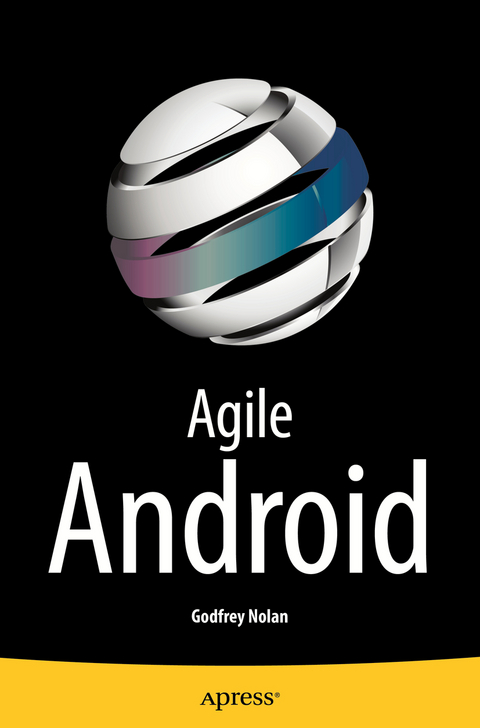
Agile Android
Seiten
2015
|
1st ed.
Apress (Verlag)
978-1-4842-9700-1 (ISBN)
Apress (Verlag)
978-1-4842-9700-1 (ISBN)
This concise book walks you through how to get unit testing and test driven development done on Android, specifically using JUnit 4. You'll learn how to do agile development quickly and correctly, with a significant increase in development efficiency and a reduction in the number of defects.
Agile practices have made major inroads in Java development, however it’s very unusual to see something as basic as unit testing on an Android project. Done correctly, Agile development results in a significant increase in development efficiency and a reduction in the number of defects. Google have finally moved away from JUnit 3 and the developer can now do the more commonly accepted JUnit 4 tests in Android Studio.
Up until now getting JUnit testing up and running in Android was not for the "faint hearted." However, "now it’s in Android Studio, there is no excuse," according to the author Godrey Nolan, president of RIIS LLC. Android developers are faced with their own set of problems such as tightly coupled code, fragmentation, immature testing tools all of which can be solved using existing Agile tools and techniques that this short book will teach you.
What You'll Learn:
What are the primary agile learning objectives applicable to Android
What are the key
Android unit testing tools and how to use themWhat is mock testing and the mock testing learning objectives and how to apply these to your Android apps
How to use dependency injection
How to apply test driven development to Android
How to deal with legacy code, a big issue with regards to Android
Audience:
This book is for experienced Android app developers looking for an edge to build better and more agile Android apps. Some experience with Java also helpful.
Agile practices have made major inroads in Java development, however it’s very unusual to see something as basic as unit testing on an Android project. Done correctly, Agile development results in a significant increase in development efficiency and a reduction in the number of defects. Google have finally moved away from JUnit 3 and the developer can now do the more commonly accepted JUnit 4 tests in Android Studio.
Up until now getting JUnit testing up and running in Android was not for the "faint hearted." However, "now it’s in Android Studio, there is no excuse," according to the author Godrey Nolan, president of RIIS LLC. Android developers are faced with their own set of problems such as tightly coupled code, fragmentation, immature testing tools all of which can be solved using existing Agile tools and techniques that this short book will teach you.
What You'll Learn:
What are the primary agile learning objectives applicable to Android
What are the key
Android unit testing tools and how to use themWhat is mock testing and the mock testing learning objectives and how to apply these to your Android apps
How to use dependency injection
How to apply test driven development to Android
How to deal with legacy code, a big issue with regards to Android
Audience:
This book is for experienced Android app developers looking for an edge to build better and more agile Android apps. Some experience with Java also helpful.
Godfrey Nolan is president of RIIS LLC, where he specializes in website optimization. He has written numerous articles for magazines and newspapers in the United States, the United Kingdom, and Ireland. Nolan has had a healthy obsession with reverse engineering bytecode since he wrote Decompile Once, Run Anywhere, which first appeared in Web Techniques in September 1997.
1. Introduction to Agile Learning objectives.-
2. Android Unit Testing Tools.-
3. Third Party Tools.-
4. Mocking Learning objectives.-
5. Dependency Injection Learning objectives.-
6. Test Driven Development Learning objectives.-
7. Dealing with Legacy Code Learning objectives.
| Erscheinungsdatum | 31.12.2015 |
|---|---|
| Zusatzinfo | 59 Illustrations, black and white; XV, 95 p. 59 illus. |
| Verlagsort | Berkley |
| Sprache | englisch |
| Maße | 155 x 235 mm |
| Themenwelt | Mathematik / Informatik ► Informatik ► Netzwerke |
| Mathematik / Informatik ► Informatik ► Programmiersprachen / -werkzeuge | |
| Informatik ► Software Entwicklung ► Mobile- / App-Entwicklung | |
| Informatik ► Theorie / Studium ► Compilerbau | |
| Informatik ► Weitere Themen ► Smartphones / Tablets | |
| ISBN-10 | 1-4842-9700-8 / 1484297008 |
| ISBN-13 | 978-1-4842-9700-1 / 9781484297001 |
| Zustand | Neuware |
| Haben Sie eine Frage zum Produkt? |
Mehr entdecken
aus dem Bereich
aus dem Bereich
Das große Handbuch zum JavaScript-Framework
Buch | Hardcover (2022)
Rheinwerk (Verlag)
CHF 55,85
Eine umfassende Einführung
Buch | Softcover (2021)
De Gruyter Oldenbourg (Verlag)
CHF 62,90


